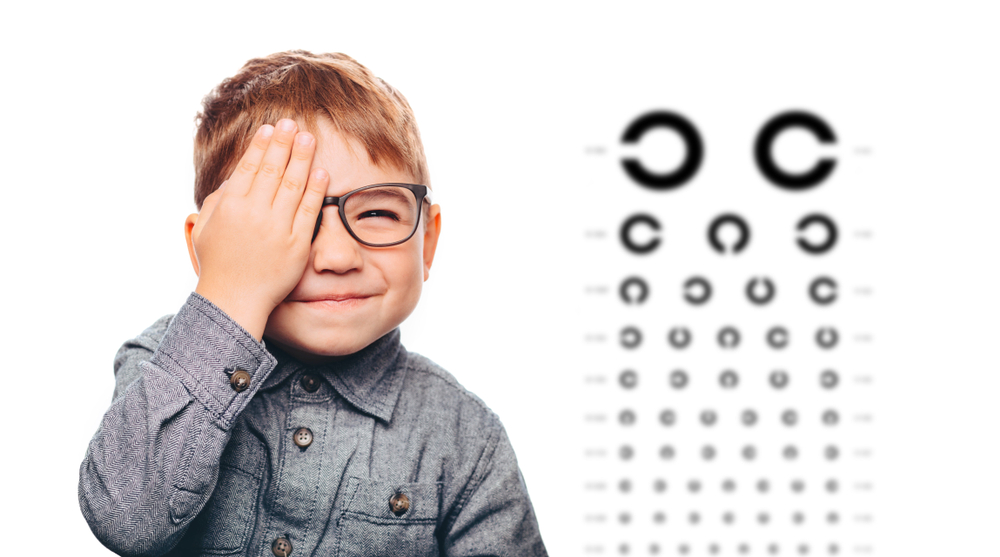
Your child's vision plays a crucial role in their academic performance. Clear and comfortable vision is essential for tasks like reading, writing, and focusing in the classroom. Unfortunately, many children struggle with undiagnosed vision problems that can significantly impact their learning and development.
Research has shown that up to 1 in 4 school-aged children have a vision condition that can affect their ability to learn. From refractive errors like nearsightedness (myopia) and farsightedness (hyperopia) to eye coordination issues and even more complex conditions, these visual challenges can make it difficult for children to keep up with their peers.
Without proper vision, your child may experience headaches, eye strain, and difficulty concentrating, which can lead to frustration, behavioral problems, and even poor academic performance. Prioritizing your child's eye health is, therefore, a vital investment in their future success.
How Eye Health Impacts Learning
Clear and comfortable vision is essential for academic success. When a child's eyes are not working together efficiently, it can lead to a range of challenges in the classroom:
- Difficulty Reading: Blurred or double vision can make it hard for a child to focus on and comprehend written material.
- Poor Concentration: Eye strain and headaches can make it difficult for a child to stay focused and attentive during lessons.
- Behavioral Issues: Vision problems can contribute to frustration, behavioral problems, and even social difficulties, as a child may struggle to keep up with their peers.
- Decreased Confidence: Struggling with schoolwork due to vision issues can negatively impact a child's self-esteem and confidence, further hindering their academic progress.
Addressing these vision-related learning challenges early on is crucial for your child's academic and personal development.
The Significance of Pediatric Eye Exams for Early Detection
Regular comprehensive eye exams are essential for the early detection and treatment of vision problems in children. The American Optometric Association recommends that children have their first eye exam at 6 months of age, followed by exams at 3 years old and 5-6 years old, and then annually thereafter.
These pediatric eye exams can identify a wide range of vision issues, including refractive errors, eye coordination problems, and even more complex conditions. By catching these problems early, eye doctors can provide the necessary treatment and interventions to help your child overcome their visual challenges and succeed in the classroom.
Early detection and treatment of vision problems can make a significant difference in a child's academic performance and overall well-being. With the right care and support, your child can develop the visual skills they need to thrive in school and beyond.
Orthokeratology for Myopia Management
Orthokeratology, commonly referred to as Ortho-K, has gained prominence as a viable treatment for myopia management. This non-surgical procedure involves the use of specially designed gas-permeable contact lenses to reshape the cornea overnight, providing clear vision during the day without the need for glasses or contact lenses. Ortho-K is particularly popular among children due to its effectiveness in controlling myopia progression and offering freedom from daytime visual aids, making it an appealing option for those engaged in sports and other physical activities.
Additionally, the treatment is known for its safety and efficacy in controlling axial length growth, and it has been found to be equally or more effective than other forms of myopia control.
Prioritizing Your Child's Eye Exam this Summer
As the new school year approaches, now is the perfect time to schedule a comprehensive eye exam for your child. By prioritizing your child's eye health before the start of the school year, you can ensure they have the visual skills they need to excel academically.
During the exam, the optometrist will assess your child's vision, eye coordination, and overall eye health. They may also recommend any necessary treatments, such as glasses or Ortho-K, to address any identified vision problems.
Scheduling your child's eye exam early also allows time for any necessary follow-up appointments or adjustments to their prescription, ensuring they are prepared and ready to tackle the new school year with confidence.
To schedule your child's comprehensive eye exam and get them ready for the new school year, contact Eye & Health today. We dedicated to ensuring your child's vision is optimized for academic success. Visit our office in New York, New York, or call (212) 228-0950 to book an appointment.









